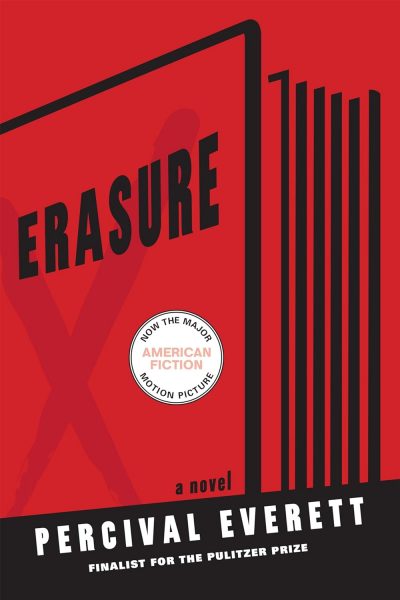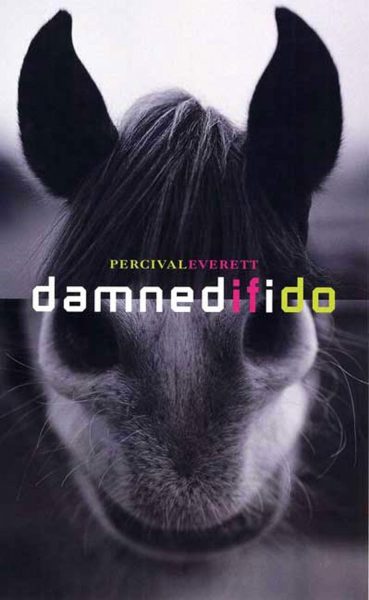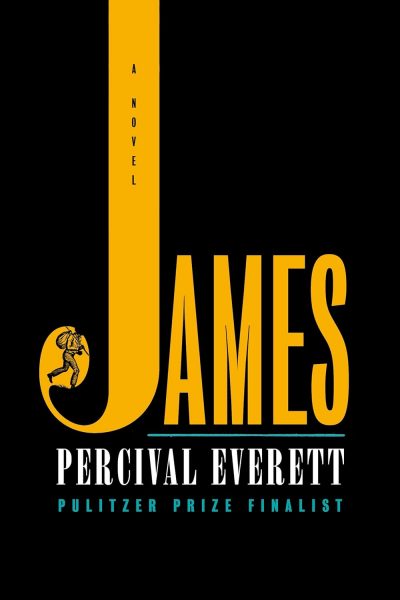
Brief Bio:
Percival Everett is an acclaimed American author, poet, painter, and academic known for his prolific output across various genres, including literary fiction, satire, and poetry. Born on December 22, 1956, in Fort Gordon, Georgia, Everett grew up in Columbia, South Carolina. He attended the University of Miami, where he earned his Bachelor of Arts in Philosophy, and later completed a Master of Fine Arts degree in Creative Writing at Brown University.
Everett’s work is characterized by its thematic diversity, often exploring issues of race, identity, and the complexities of human experience, but he is also known for his sharp wit and narrative experimentation. His philosophical training deeply influences the thematic complexity of his work, often exploring existential questions and moral ambiguity. Some of his most notable novels include “Erasure” (2001), “I Am Not Sidney Poitier” (2009), and “The Trees” (2021). “Erasure”, in particular, garnered widespread critical acclaim for its satirical take on the publishing industry’s expectations of Black authors.
In addition to his writing, Everett has had a distinguished academic career. He is a professor of English at the University of Southern California (USC), where he has influenced many students with his teaching in creative writing and literature.
Everett has received numerous awards and honors throughout his career, including the Hurston/Wright Legacy Award, the PEN Center USA Award for Fiction, and the Anisfield-Wolf Book Award. He is widely regarded as one of the most innovative and important voices in contemporary American literature.
Available Works in the Colorado Book Club Resource
The Book Club Resource has 8+ copies of each title available for 8 weeks at a time to reading groups across the state. The descriptions below were taken from Amazon.com.
Erasure (2001) | Discussion Questions
 Thelonious “Monk” Ellison’s writing career has bottomed out: his latest manuscript has been rejected by seventeen publishers, which stings all the more because his previous novels have been “critically acclaimed.” He seethes on the sidelines of the literary establishment as he watches the meteoric success of We’s Lives in Da Ghetto, a first novel by a woman who once visited “some relatives in Harlem for a couple of days.” Meanwhile, Monk struggles with real family tragedies―his aged mother is fast succumbing to Alzheimer’s, and he still grapples with the reverberations of his father’s suicide seven years before. In his rage and despair, Monk dashes off a novel meant to be an indictment of Juanita Mae Jenkins’s bestseller. He doesn’t intend for My Pafology to be published, let alone taken seriously, but it is―under the pseudonym Stagg R. Leigh―and soon it becomes the Next Big Thing. How Monk deals with the personal and professional fallout galvanizes this audacious, hysterical, and quietly devastating novel.
Thelonious “Monk” Ellison’s writing career has bottomed out: his latest manuscript has been rejected by seventeen publishers, which stings all the more because his previous novels have been “critically acclaimed.” He seethes on the sidelines of the literary establishment as he watches the meteoric success of We’s Lives in Da Ghetto, a first novel by a woman who once visited “some relatives in Harlem for a couple of days.” Meanwhile, Monk struggles with real family tragedies―his aged mother is fast succumbing to Alzheimer’s, and he still grapples with the reverberations of his father’s suicide seven years before. In his rage and despair, Monk dashes off a novel meant to be an indictment of Juanita Mae Jenkins’s bestseller. He doesn’t intend for My Pafology to be published, let alone taken seriously, but it is―under the pseudonym Stagg R. Leigh―and soon it becomes the Next Big Thing. How Monk deals with the personal and professional fallout galvanizes this audacious, hysterical, and quietly devastating novel.
Damned If I Do: Stories (2004) | Discussion Questions
 A cop, a cowboy, several fly fishermen, and a reluctant romance novelist inhabit these revealing and often hilarious stories. An old man ends up in a high-speed car chase with the cops after stealing the car that blocks the garbage bin at his apartment building. A stranger gets a job at a sandwich shop and fixes everything in sight: a manual mustard dispenser, a mouthful of crooked teeth, thirty-two parking tickets, and a sexual-identity problem. Percival Everett is a master storyteller who ingeniously addresses issues of race and prejudice by simultaneously satirizing and celebrating the human condition.
A cop, a cowboy, several fly fishermen, and a reluctant romance novelist inhabit these revealing and often hilarious stories. An old man ends up in a high-speed car chase with the cops after stealing the car that blocks the garbage bin at his apartment building. A stranger gets a job at a sandwich shop and fixes everything in sight: a manual mustard dispenser, a mouthful of crooked teeth, thirty-two parking tickets, and a sexual-identity problem. Percival Everett is a master storyteller who ingeniously addresses issues of race and prejudice by simultaneously satirizing and celebrating the human condition.
James (2024) | Discussion Questions
 When the enslaved Jim overhears that he is about to be sold to a man in New Orleans, separated from his wife and daughter forever, he decides to hide on nearby Jackson Island until he can formulate a plan. Meanwhile, Huck Finn has faked his own death to escape his violent father, recently returned to town. As all readers of American literature know, thus begins the dangerous and transcendent journey by raft down the Mississippi River toward the elusive and too-often-unreliable promise of the Free States and beyond. While many narrative set pieces of Adventures of Huckleberry Finn remain in place (floods and storms, stumbling across both unexpected death and unexpected treasure in the myriad stopping points along the river’s banks, encountering the scam artists posing as the Duke and Dauphin…), Jim’s agency, intelligence and compassion are shown in a radically new light.
When the enslaved Jim overhears that he is about to be sold to a man in New Orleans, separated from his wife and daughter forever, he decides to hide on nearby Jackson Island until he can formulate a plan. Meanwhile, Huck Finn has faked his own death to escape his violent father, recently returned to town. As all readers of American literature know, thus begins the dangerous and transcendent journey by raft down the Mississippi River toward the elusive and too-often-unreliable promise of the Free States and beyond. While many narrative set pieces of Adventures of Huckleberry Finn remain in place (floods and storms, stumbling across both unexpected death and unexpected treasure in the myriad stopping points along the river’s banks, encountering the scam artists posing as the Duke and Dauphin…), Jim’s agency, intelligence and compassion are shown in a radically new light.
A Few Notable Facts:
- Percival Everett is known for his versatility as a writer, producing work in a variety of genres, including literary fiction, satire, poetry, and even children’s books. His ability to shift between different styles and forms has made him a unique figure in contemporary literature.
- In addition to his prolific writing, Everett is also a respected academic. He serves as a Distinguished Professor of English at the University of Southern California (USC), where he teaches creative writing and literature. His academic career has had a significant influence on his students and the broader literary community.
- Many of Everett’s works, such as Erasure and The Trees, explore complex themes related to race, identity, and societal expectations. He often uses satire and irony to challenge stereotypes and question the constructs of race in America.
- Everett has received numerous prestigious awards throughout his career, including the Hurston/Wright Legacy Award, the PEN Center USA Award for Fiction, and the Anisfield-Wolf Book Award. These accolades highlight his contribution to American literature and his impact on discussions about race and identity.
- Everett studied philosophy during his undergraduate years, and this background has deeply influenced his writing. His works often engage with philosophical ideas, questioning the nature of reality, identity, and morality.
- Everett is an extraordinarily prolific writer, with over 30 published books, including novels, short stories, and poetry collections. Despite the vast number of works, he has maintained a high level of quality and originality throughout his career.
- Everett tends to keep his personal life private, but it is known that he lives in Los Angeles, California. His personal experiences and observations often subtly inform his work, particularly his explorations of the American West and Southern identity.
- In addition to his literary work, Percival Everett is an accomplished painter and musician. His interdisciplinary talents often inform his narrative style, imbuing his prose with a keen sense of rhythm and visuality. This artistic sensibility adds depth to his writing, making it richly layered and engaging. He has also created cover art for some of his books, showcasing his talents beyond the literary world.
- Everett is known for his experimentation with narrative form. He often employs unconventional structures, such as mixing genres, using metafiction, and playing with unreliable narrators. These techniques challenge readers’ expectations and invite them to engage more deeply with the text.
- Everett has often resisted being pigeonholed as an “African American writer” in a way that limits the scope of his work. While race is a significant theme in much of his writing, he addresses a wide array of topics, ranging from Westerns to classical mythology. This refusal to be categorized reflects his broader challenge to literary and cultural norms.
- Everett’s work has had a significant influence on a new generation of writers, particularly those interested in addressing issues of race, identity, and the boundaries of genre. His innovative approaches to storytelling have inspired others to push the limits of narrative form and content.
- Despite his significant contributions to literature, Everett’s work has sometimes been underappreciated by mainstream literary establishments, leading to discussions about the marginalization of certain voices in the literary canon. However, his recent works, particularly The Trees, have brought renewed attention and critical acclaim, helping to solidify his place in contemporary American literature.
- Throughout his career, Everett has been a strong advocate for creative freedom and the importance of literature in challenging societal norms. He often speaks out against censorship and the commercialization of art, arguing for the value of literature that provokes thought and fosters intellectual independence.
- In addition to his novels, Everett’s short fiction has also garnered praise. His collection Damned if I Do (2004) was particularly well-received, showcasing his ability to craft powerful, compact narratives that delve into human psychology and social issues.
- Many of Everett’s works explore themes of justice and injustice, particularly in relation to the American legal system and societal norms. His novel Percival Everett by Virgil Russell (2013) is an example of how he intertwines personal narratives with broader social critiques, creating stories that are both intimate and universally resonant.
- Despite his success as a writer, Everett remains committed to teaching and mentoring the next generation of writers. His role as a professor at USC allows him to influence and inspire young writers, helping them to find their voices and challenge the status quo in their own work.
Awards and Recognition
- 1990: Zulus – New American Writing Award
- 1997: Big Picture – PEN Oakland/Josephine Miles Literary Award (Winner)
- 2001: Erasure – Academy Award in Literature from The American Academy of Arts and Letters
- 2002: Erasure – Hurston/Wright Legacy Award for Fiction (Winner)
- 2006: Wounded – PEN Center USA Award for Fiction (Winner)
- 2008: Everett received an honorary doctorate from the College of Santa Fe
- 2010: Dos Passos Prize (Winner)
- 2010: I Am Not Sidney Poitier – Believer Book Award (Winner)
- 2010: I Am Not Sidney Poitier Hurston/Wright Legacy Award for Fiction (Winner)
- 2010: Wounded (Ferito) – Premio Gregor von Rezzori (Winner)
- 2015: Guggenheim Fellowship in Fiction
- 2015: Phi Kappa Phi Presidential Medallion – University of Southern California.
- 2016: Creative Capital Award (Winner)
- 2018: So Much Blue – PEN Oakland/Josephine Miles Literary Award (Winner)
- 2019: Reginald Lockett Lifetime Achievement Award (Winner)
- 2021: Telephone – Hurston/Wright Legacy Award for Fiction (Winner)
- 2021: Telephone – Pulitzer Prize for Fiction (Finalist)
- 2022: Dr. No – National Book Critics Circle Award (Shortlist)
- 2022: The Trees – Bollinger Everyman Wodehouse Prize for Comic Fiction (Winner)
- 2022: The Trees – Booker Prize (Shortlist)
- 2022: The Trees – Hurston/Wright Legacy Award (Winner)
- 2023: Los Angeles Review of Books/UCR Lifetime Achievement Award (Winner)
- 2023: Windham-Campbell Literature Prize for Fiction (Winner)
- 2023: Dr. No – PEN/Jean Stein Book Award (Winner)
- 2023: The Trees – PEN/Jean Stein Book Award (Finalist)
- 2024: James – Booker Prize (Longlist)
- Everett’s stories have been included in the Pushcart Prize Anthology and Best American Short Stories.
Additional Resources & Further Reading
- “James” author Percival Everett on race, language and art – CBS Sunday Morning, March 24, 2024
- Red Summer: Percival Everett’s American Landscapes – William Campbell Prizes Festival, 2023
- Giving “James” a Voice: Percival Everett on His Reimagining of Huck Finn – Amanpour and Company, April 12, 2024
- G&G Reads: A Conversation with Percival Everett – Garden & Gun Magazine, June 18,2024
- Percival Everett by Rone Shavers – BOMB Magazine, July 1, 2004
- Percival Everett Thinks Your Smart – Brown Alumni Magazine, October 31, 2023
- Several Attempts at Understanding Percival Everett – The Millions, April 11, 2024
- ‘I’d love a scathing review’: novelist Percival Everett on American Fiction and rewriting Huckleberry Finn – The Guardian, April 6, 2024
Sources
Book club sets are circulated to participating libraries via the CLiC courier. Read all about the program on the Book Club Resource landing page. If you are interested in receiving book club sets but are not already a member library, use the online form to get signed up.
Since the BCR has always relied on book donations, we are deeply grateful to all of the institutions and individuals that have donated sets and helped make the collection stronger. Please contact bookclub@coloradovirtuallibrary.org for questions or to discuss donations.
- Accessibility Quick Tip: Invitation from OIT - March 19, 2025
- Book Club Author Suggestion: John Green - February 12, 2025
- Desperately Seeking High School Newspapers – for CHNC - January 21, 2025